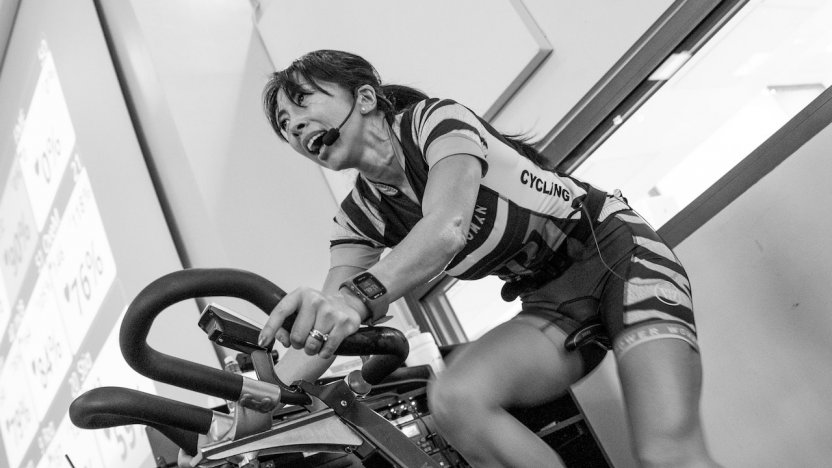Defining the relevant public: Why the 'Spinning' trademark is still rolling

This article first appeared in WTR Daily, part of World Trademark Review, in July 2022. For further information, please go to www.worldtrademarkreview.com.
The EU General Court has issued its decision in the decade-long dispute over the 'Spinning' trademark, as used for exercise-related goods and services. Aurélie Guetin cycles back to take a look at the proceedings.
On 6 July 2022, the General Court issued its decision in Aerospinning Master Franchising v European Union Intellectual Property Office (EUIPO) (Case T-246/20). This is the second decision of the court in these decade-long proceedings to revoke SPINNING for exercise-related goods and services.
Background to the ruling
In April 2000, Mad Dogg Athletics Inc, a company that markets various sporting equipment, including bicycles, men’s and women’s apparel, shoes, accessories and functional training equipment, obtained the registration of the word mark SPINNING in the EU for the following goods and services:
- Class 9: audio and video cassettes;
- Class 28: exercise equipment; and
- Class 41: exercise training.
Mad Dogg’s word mark SPINNING was registered in the EU for 12 years, until it became the subject of a cancellation action by Aerospinning Master Franchising Ltd under Article 58(1)(b) of Regulation 2017/1001. The basis for the claim was that 'spinning' had become a common name for the 'exercise equipment' and 'exercise training' services in question – that is, indoor cycling.
In 2014, the Cancellation Division of the EUIPO revoked Mad Dogg’s rights in respect of the contested mark in their entirety and, in 2016, the Fifth Board of Appeal of the EUIPO confirmed the cancellation of the trademark SPINNING in Classes 28 and 41, finding that the word had indeed become generic for these products and services.
First General Court decision
By judgment of 8 November 2018 (Case T-718/16), the EU General Court annulled the Board of Appeal’s decision insofar as it concerned the goods in Class 28 and the services in Class 41. The court held as follows:
- The applicability of the ground for revocation must be examined in light of the context on the date of filing of the application for revocation at the latest.
- Where it is established that an EU trademark (EUTM) has lost all distinctive character in a single member state, then that mark is no longer capable of producing the effects envisaged by the regulation.
- The relevant public did not consist only of end consumers. Professionals in the relevant market – such as gym operators, sporting facilities and rehabilitation facilities – play a central role in the market; they provide cycles to their customers to enable them to practice sporting activities using those indoor cycles. These operators should not have been excluded from the Board’s assessment.
This judgement was particularly interesting in that it confirmed the unitary character of EUTMs and highlighted the role of commercial operators, who should be taken into account as part of the relevant public.
Following the judgment, the case was remitted to the Fourth Board of Appeal and, on 26 February 2020, that Board annulled the Cancellation Division’s decision.
Second General Court decision
The question raised before the Court was whether, in circumstances such as those of the present case, given the characteristics of the market concerned and having regard to the conclusions which must be drawn from the judgment in Case T‑718/16, the Fourth Board of Appeal was right in rejecting the application for revocation at issue by taking into account primarily the perception of the contested mark by the part of the relevant public consisting of professionals, including gym operators, sports facilities and rehabilitation facilities.
The General Court confirmed the position of the 2018 judgment, in which it was held that: “the public consisting of professionals on the relevant market, such as, inter alia, operators of gyms, sporting facilities and rehabilitation facilities played a central role on the market for the goods in Class 28 and had a decisive influence on the selections of end consumers, as regards the services in Class 41.”
The Court referred to relevant case law (see the judgment of 18 May 2018 in Case T‑419/17), which held as follows: “Nevertheless, a trademark may, even if the purchaser does not know that it is a trademark, continue to perform its function as an indication of origin where an intermediary exerts a decisive influence over the purchaser’s decision to purchase and the intermediary’s knowledge of the trademark’s function as an indication of origin thus leads to the success of the communication process. That is the case where it is customary in the relevant market for the intermediary to give advice which has a decisive bearing on the decision to purchase or where the intermediary actually makes the decision for the consumer himself or herself ([…] T‑419/17, […] Paragraph 33; see also, by analogy, Opinion of Advocate General Cruz Villalón in Backaldrin Österreich The Kornspitz Company, C‑409/12, […] Point 59).”
Spinning on empty?
This judgement confirms that the relevant public must be clearly identified before taking any action. The following questions are relevant here: who buys the products, who offers the services and how?
Aurélie Guétin is Managing Director, Trademarks at Novagraaf in France.